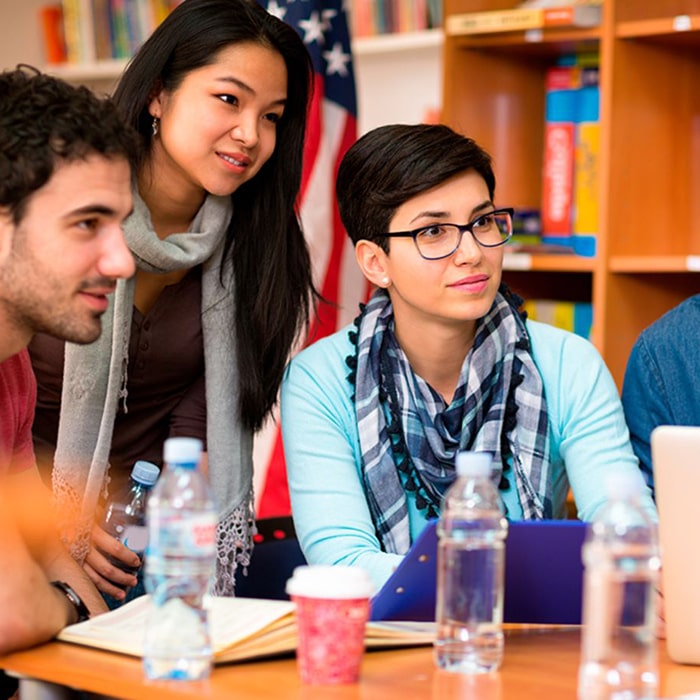Inquiry-Based Learning
Students investigate real-world concepts and questions to build deep understanding and critical thinking skills.


Years of Experience
We foster a dynamic environment where creativity, and global citizenship thrive through the IB PYP’s focus on inquiry, collaboration, and reflection.
Students investigate real-world concepts and questions to build deep understanding and critical thinking skills.
Emphasis on academic, social, emotional, and physical growth to develop well-rounded individuals.
Learners embrace diverse perspectives and develop respect and empathy for others around the world.
Students strive to be inquirers, thinkers, communicators, and caring individuals who take responsible action.
Research skills enable students to locate, evaluate, and synthesize information from diverse sources. These skills are essential for developing informed opinions, supporting arguments with evidence, and becoming lifelong learners.
Social skills foster collaboration, empathy, and effective communication. Students learn to work respectfully in groups, resolve conflicts peacefully, and support the learning and well-being of others through positive interpersonal relationships.
Transdisciplinary learning weaves together concepts and skills from multiple subject areas, allowing students to see the bigger picture and apply their understanding in real-world contexts. This approach fosters a deep, interconnected view of the world that nurtures meaningful learning experiences.
Inquiry-based learning places students at the center of the educational experience, encouraging them to ask questions, investigate, and draw conclusions. It cultivates a spirit of curiosity and a love for discovery, empowering students to take ownership of their learning.
Thinkers use critical and creative thinking skills to approach complex problems, consider multiple perspectives, and make thoughtful decisions. They are reflective and resourceful, constantly seeking better ways to understand and improve the world around them.
Communicators express themselves confidently and effectively in various forms and contexts. They listen thoughtfully to others, collaborate constructively in groups, and use language as a tool to bridge ideas, cultures, and communities.
Principled individuals act with honesty, integrity, and fairness. They take responsibility for their actions and their consequences, and they advocate for justice and equality in both local and global communities.
Knowledgeable learners build a broad and deep understanding of important ideas across disciplines. They actively seek knowledge, explore complex topics, and apply what they learn to make meaningful contributions to their communities.
Open-minded individuals are receptive to new ideas and perspectives. They value diversity, appreciate different cultures, and strive to understand others' beliefs and traditions with empathy and respect.
The concept of change emphasizes understanding how things evolve over time, both naturally and through human influence. It encourages students to explore transformation, causality, and the implications of change on systems and societies.
Research skills enable students to locate, evaluate, and synthesize information from diverse sources. These skills are essential for developing informed opinions, supporting arguments with evidence, and becoming lifelong learners.
Social skills foster collaboration, empathy, and effective communication. Students learn to work respectfully in groups, resolve conflicts peacefully, and support the learning and well-being of others through positive interpersonal relationships.
Transdisciplinary learning weaves together concepts and skills from multiple subject areas, allowing students to see the bigger picture and apply their understanding in real-world contexts. This approach fosters a deep, interconnected view of the world that nurtures meaningful learning experiences.
Inquiry-based learning places students at the center of the educational experience, encouraging them to ask questions, investigate, and draw conclusions. It cultivates a spirit of curiosity and a love for discovery, empowering students to take ownership of their learning.
Thinkers use critical and creative thinking skills to approach complex problems, consider multiple perspectives, and make thoughtful decisions. They are reflective and resourceful, constantly seeking better ways to understand and improve the world around them.
Communicators express themselves confidently and effectively in various forms and contexts. They listen thoughtfully to others, collaborate constructively in groups, and use language as a tool to bridge ideas, cultures, and communities.
Principled individuals act with honesty, integrity, and fairness. They take responsibility for their actions and their consequences, and they advocate for justice and equality in both local and global communities.
Knowledgeable learners build a broad and deep understanding of important ideas across disciplines. They actively seek knowledge, explore complex topics, and apply what they learn to make meaningful contributions to their communities.
Open-minded individuals are receptive to new ideas and perspectives. They value diversity, appreciate different cultures, and strive to understand others' beliefs and traditions with empathy and respect.
The concept of change emphasizes understanding how things evolve over time, both naturally and through human influence. It encourages students to explore transformation, causality, and the implications of change on systems and societies.
Research skills enable students to locate, evaluate, and synthesize information from diverse sources. These skills are essential for developing informed opinions, supporting arguments with evidence, and becoming lifelong learners.
Social skills foster collaboration, empathy, and effective communication. Students learn to work respectfully in groups, resolve conflicts peacefully, and support the learning and well-being of others through positive interpersonal relationships.
